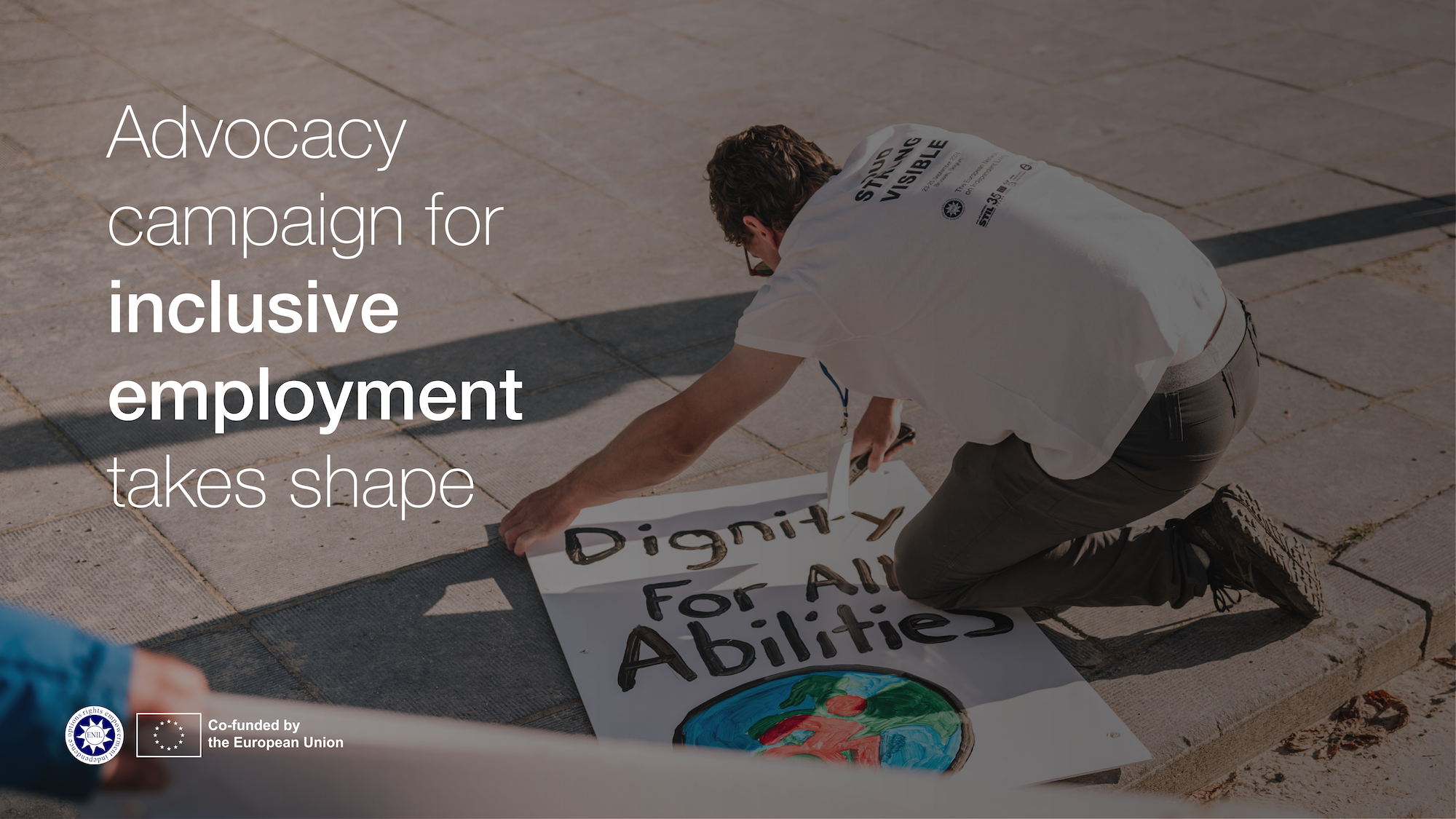The month of May is busy with several annual EU level meetings, among them the Work Forum on the implementation of the UN Convention on the Rights of Persons with Disabilities (CRPD) and the Annual Convention on Inclusive Growth. ENIL attended both meetings with several representatives.
The 2019 Work Forum on the CRPD brought together those responsible for the implementation and monitoring of the Convention, at the EU and national level. They included representatives of the national human rights institutions, national and EU level NGOs and some Government representatives. This year’s conference was divided into three sessions, focused on the following topics: political participation (with the upcoming European elections), claiming rights under the CRPD and the interplay between the CRPD and other international Conventions.
Most relevant to ENIL was the second session, where various avenues for bringing complaints against disability rights violations were presented. The European Social Charter (Revised) provides this option to those countries that ratified the Charter, with the EU not being a party. The European Ombudsman receives complaints against EU institutions by both individuals and organisations, for breaches of EU law. However, it can only issue recommendations, which are not binding. The office of the UN Special Rapporteur on the Rights of Persons with Disabilities also receives complaints by both individuals and organisations under the so-called special procedures and, if admissible, can publish a communication asking the Government to take action in relation to specific human rights violation(s). Same as with the Ombudsman, this procedure is quasi-judicial, which means that the Special Rapporteur has no means to enforce her/his recommendations.
The most controversial session was that on the draft Protocol of the Oviedo Convention on the Protection of Human Rights in the Biomedical Field, which seeks to regulate involuntary treatment against people with disabilities. There have been calls on the Council of Europe by DPOs, the UN Special Rapporteur and the CRPD Committee to withdraw this draft Protocol, which is not in line with Article 12 of the UN CRPD. The Hague Convention on the Protection of Vulnerable Adults is used in situations that involve two or more countries, for example in cases where an individual falls seriously ill or acquires and impairment in another country. Questions were also raised about the compatibility of the Hague Convention with the CRPD, because of allowing substitute decision making and placement into an institution by family members, for example.
The Annual Convention on Inclusive Growth brings together policy makers and CSOs, whose aim is to discuss how to achieve inclusive growth. It is worth highlighting the workshop on the European Disability Strategy post 2020, where the European Commission gathered suggestions from participants on how to approach the next Disability Strategy and what should be included. ENIL suggested the new strategy must address the problem of increasing institutionalisation of disabled people in the EU, as highlighted by ANED’s recent report on Independent Living. We also noted that, currently, there are different approaches to personal assistance in the EU, with some countries perpetuating reliance of disabled people on family members as carers. The strategy should seek to ensure that Member States move towards personal assistance as defined in the General Comment No 5 on Article 19 CRPD.
Finally, it is worth mentioned that on 21 May, ENIL was invited to speak at the European Network on Rural Development Workshop on Combatting Rural Depopulation. Our task was to raise awareness about the right to independent living, the problems faced by disabled people in rural areas, and the need to prevent and address segregation of disabled people in institutions, many of which are located in remote, rural areas in the EU.


